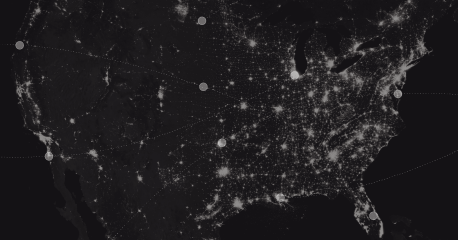In a significant development for cross-border trade and supply chain security, President Biden has signed the Customs Trade Partnership Against Terrorism (CTPAT) Pilot Program Act into law. This legislation establishes a five-year pilot program to expand CTPAT eligibility to include trusted logistics companies.
Since its inception in 2001, the CTPAT program has played a pivotal role in bolstering the security of international supply chains. Managed by U.S. Customs and Border Protection (CBP), CTPAT is a voluntary public-private partnership that encourages importers, exporters, and other stakeholders to implement rigorous security measures in exchange for benefits like expedited customs processing and reduced inspections.
What the CTPAT Pilot Program Entails
Until now, participation in CTPAT has been limited to specific segments of the supply chain, such as importers, carriers, consolidators, licensed custom brokers, and manufacturers. However, the supply chain landscape is evolving rapidly, and logistics providers—including third-party logistics companies, freight forwarders, and other intermediaries—are critical players in ensuring the secure and efficient movement of goods across borders.
The new pilot program aims to address this gap by allowing trusted logistics providers to apply for CTPAT certification. Over the next five years, CBP will evaluate how integrating these entities into the program can enhance overall supply chain security. Key features of the pilot program include:
- Eligibility Expansion: Trusted logistics companies can now apply for CTPAT certification, provided they meet stringent security criteria.
- Evaluation and Reporting: CBP will assess the program’s effectiveness and submit a comprehensive report to Congress at the end of the five-year period, outlining its impact on supply chain security and efficiency.
- Public-Private Collaboration: The pilot underscores the importance of continued collaboration between CBP and the private sector to adapt to emerging threats and opportunities.
>> Learn more about the new CTPAT forced labor requirements <<
For logistics companies, the CTPAT pilot program represents both an opportunity and a challenge. Achieving CTPAT certification can provide significant benefits, including faster customs processing, fewer inspections, and increased trust from partners and clients. However, it also requires companies to implement comprehensive security measures, conduct regular audits, and ensure compliance with CTPAT standards.
Participants must also consider emerging regulatory requirements, such as compliance with forced labor regulations such as the UFLPA, which has become a critical issue globally. Companies failing to meet these requirements may face detentions, fines, or exclusion from trusted trader programs.
Meeting CTPAT Requirements
Navigating the complexities of CTPAT certification and broader supply chain compliance can be daunting. To not lose out on the benefits of this pilot program, logistics providers can leverage a supply chain risk management platform, such as Sayari Map to help them meet these requirements. Sayari Map empowers supply chain risk management, responsible sourcing, sustainability, and procurement teams to quickly map upstream supply chains, identify supply chain risk, and build comprehensive risk adjudication and monitoring workflows. If you’re looking to stay in lock step with regulators, CBP also relies on Sayari data for their forced labor investigations.
>> Learn how to enhance your supply chain audit with Chinese public records <<
Logistics providers interested in the program should conduct risk-based mapping that outlines their supply chains in their entirety, including regions and suppliers that they feel pose the most risk for forced labor. Sayari can help alleviate this gigantic aspect (supply chain mapping) of your CTPAT application or renewal.
Additionally, Sayari Map supports CTPAT risk-based mapping with its:
- Industry-leading data that gives you insights into the focus regions that leave your supply chain most at risk, including corporate data on more than 250 jurisdictions and trade data from over 70 countries.
- Precomputed UFLPA Risk Indicators and a suite of graph analytics tools to empower import control teams to quickly and confidently identify forced labor within their sub-tier supplier networks.
- DHS CBP UFLPA entity lists enriched with 5,000 previously unidentified subsidiaries, joint ventures, branches, and affiliates.
- Profiles on 2.5 million corporate entities geolocated in Xinjiang Province as well as 91 million Chinese companies, continuously updated to ensure you’re working with the most up-to-date information available.
To see exactly how Sayari Map can support your CTPAT compliance efforts, watch our in-house analysts demonstrate techniques for more effective supply chain forced labor risk identification.



